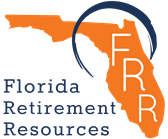Baptist Retirement
Baptist Health 403(b)/401(k) Plans
The Baptist Health Retirement 401k and 403b plans are tax qualified plans offered to employees to help you save towards retirement. The plans are very similar in design. Both your contributions, and any applicable employee match are invested into a tax-deferred or ROTH account based on your elections. The automatic contribution amount for new employees is 6% of your pretax income into a tax-deferred account. You can change this amount at your discretion. Additionally you may receive matching employer contributions of 50% of up to 4% of your contributions into the plan. For example. If you were to elect to contribute 4% to your account, your employer will match an additional 2% making your total contribution amount equal to 6% of your total pretax income.
There are many options for how you can invest your funds in your account. The default option if you do not make an investment election yourself will mean your investments will be placed into a retirement date fund that most closely matches the year in which you will turn age 65. There are currently 13 retirement date funds available, 7 asset class funds, and a Self-Directed Brokerage Account that offers over 8,500 more.
Choosing how your funds are invested can be one of the most critical components of your retirement account balance when you separate from service. For example, imagine your annual compensation is $60,000 annually, and you work in your position for 30 years. Your default 6% contribution would be $3,600. Your employer's matching contribution of 2% would be $1,200. The total annual contribution to your account would be $4,800. Over 30 years, the total contribution amount from you and your employer would equal $144,000. Now let's assume that over your 30 year career, your investment fund you have chosen earns an average of 6% annually. At retirement, your total account value would be $379,479.29. That means $235,479.29 of your total account value, or the majority 62% of your total retirement benefit would come from interest growth, and not contributions. So as you can see, knowing how and where your investment plan funds are invested can be a crucial part of your retirement income planning process. If you have questions about how your investment funds are allocated, schedule a 15 minute meeting with one of our financial professionals who can help you learn more about your specific goals and investments.
This hypothetical example is for illustrative purposes only, and its results are not representative of any specific investment or mix of investments. Actual results will vary

